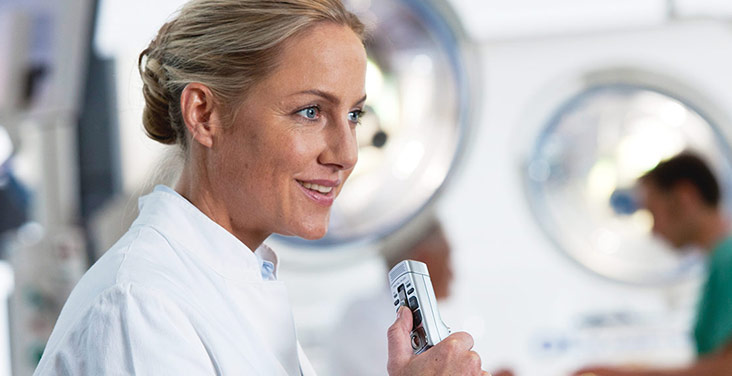
NHS Lothian produce a vast amount of medical documents each year, the process followed in the past is one where clinicians use analogue tapes, the information is dictated onto a dictaphone and then passed onto administration and clerical staff to produce a typed document.
This resulted in the risk of tapes going missing, being taped over, misunderstood information on the tapes and a delay in the production of documents. Administration and clerical staff also faced the challenge of identifying which tape was priority. The healthcare provider also faced security issues with the risk of missing information and incorrect patient data being attached to the wrong tapes or dictaphone.
NHS Lothian experienced a high backlog of documents to be produced; they wanted to increase the secretarial productivity of documents to support clinical and patient demand while also reducing the amount of errors on documents produced and increase security of patient data.
The Solution
NHS Lothian strives to ensure that best practice is implemented wherever possible therefore it is vital to use the most effective and efficient technology. In order to improve the provision of healthcare services for patients, the decision was taken to undertake a pilot scheme across four hospital departments to replace the existing analogue platform with a digital one.
The goal was to show that a reduction in the work backlog could be achieved alongside an increase in the production of documentation and security to support patients. Northgate Managed Services in partnership with G2 Speech implemented a solution which allows for the creation and sending of high volumes of medical correspondence and reports in an efficient and accurate manner. The solution implemented was back-end speech recognition, where the clinician dictates information, this is processed by the speech recognition engine and the documents created. The admin and clerical staff then check the document for errors. The solution enables the documents to be created in a more efficient manner with less error’s and more secure patient data.
Results
Following the pilot of the speech recognition and digital dictation solution across the four hospital departments, NHS Lothian have experienced a dramatic improvement in the turnaround time of documents in particular the turnaround time for discharge summaries has reduced from on average nine days to on average five days. An average of 43% efficiency gains across the 4 hospital departments has been gained in relation to the number of square inches of text produced per minute.
Urgent correspondence which accounts for 2% of total volume of dictation has seen an improvement of 90.68%. Non urgent correspondence which accounts for 98% of total volume of dictation seen an improvement of 98.35%.
There are now approximately 700 users in NHS Lothian using the digital dictation solution. The technology provides instant management of information, work backlogs can now be completed, and items prioritised and increased efficiency time between dictation to production.
Martin Egan, the Board’s Director of eHealth commented, “I’m delighted with the results so far and we have seen some very impressive improvements in the turnaround times for completed documents. In addition I was impressed with how quickly the software learned each user’s voice and the subsequent high percentage of accuracy achieved.”
Project Requirements
- Currently using analogue tapes
- High backlog of documents
- Need to reduce amount errors in correspondence
Project Outcome
- Urgent correspondence improved by 90.68%
- 43% efficiency gains across the four hospital departments
- Turnaround times reduced from nine days to five
- Increased security of patient data

